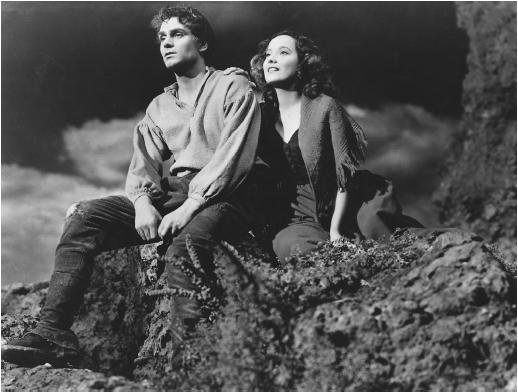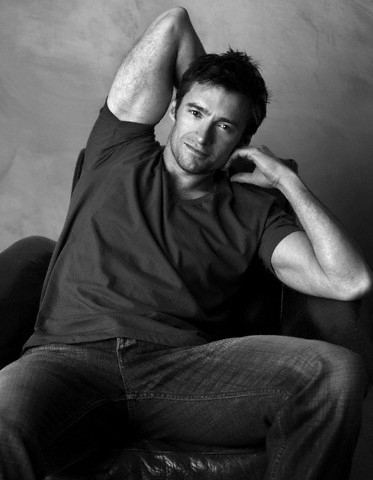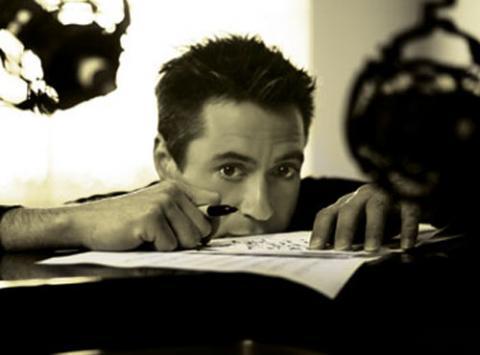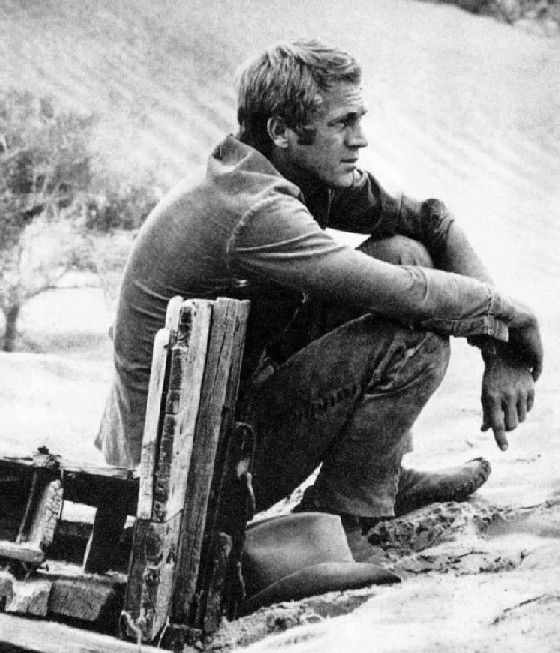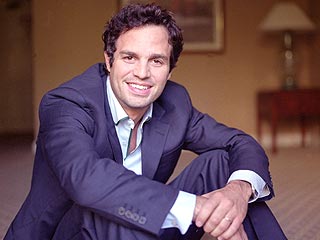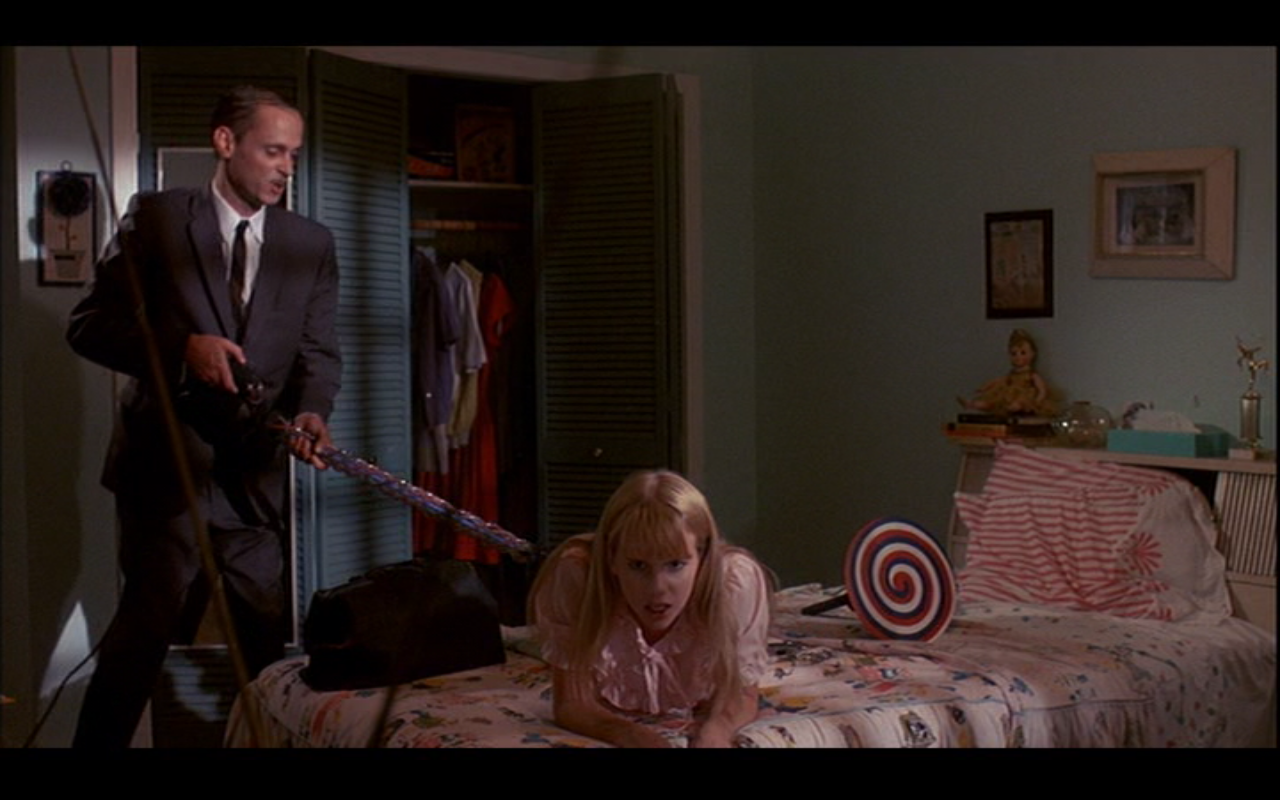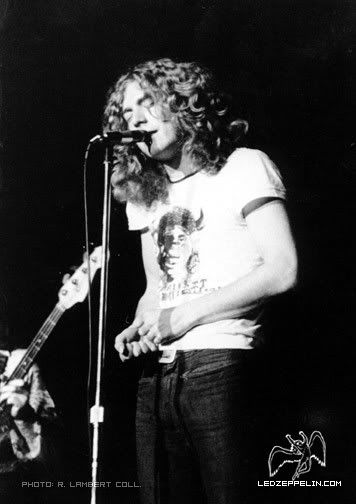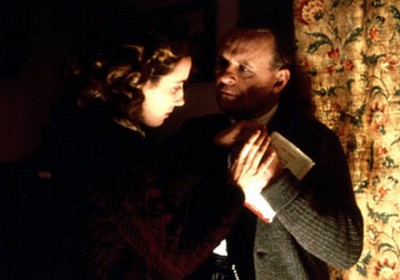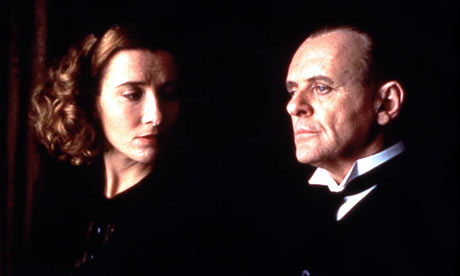In case you live in a box, this is slightly spoilery. Kind of.I've long been fascinated by Civil War-era American history, initially drawn to it by
American Girl articles about the underground railroad and the
Addy* series of books. I suppose it was the same macabre attraction that other girls my age had for Lurlene McDaniel books or the Holocaust. But the real clincher that solidified this bizarre time in American history into my heart was
Gone With the Wind (1936). I first read the book at the end of 9th grade when we were asked to read a novel set during the Civil War
. Never before had I seen the Southern slaveholder perspective put on the page or in the movies. Never had I heard about Reconstruction and the ruins it left behind. But most of all, I had never read about such flawed but engaging characters to the tune of a thousand pages before. Having just finished the novel for the third time after a five year hiatus, I was struck again why I'm compelled to call it one of my all-time favorite books.

For those unfamiliar, the novel follows Georgian Southern belle Scarlett O'Hara through the Civil War and Reconstruction. The mainstays in her life are her childhood love Ashely Wilkes, Ashley's genuinely good wife Melanie, and her decade-long suitor Rhett Butler. There are many other characters--the mother Scarlett worships, the father she takes after, her Mammy, a couple of husbands, her children, slaves (or ex-slaves) from the Tara plantation, and her neighbors--but the main story, besides just trying to survive, is between Scarlett and Rhett and their strong personalities clashing into some semblance of a romance.
For an epic novel, it's incredibly well paced. Forays into historical context never feel like work to get through, but give just enough information about the state of the battlefield or society to let us understand how the main characters fit in. In fact, the first section of the book, about 140 pages, take place over two days, giving us so much background on Scarlett's parents, her personality, and the daily routine of the plantation she lives on, that it's a sufficient building block to base Scarlett's motivations for the rest of the novel. The context also helps me understand such a foreign world where slave labor is tacitly accepted, where even prostitutes and freed slaves uphold social norms, and where the Ku Klux Klan is seen as a necessity. Margaret Mitchell gives enough honest perspective (much of it jeering) that you feel okay to go along with the character's assumptions while realizing many are wildly erroneous.
The character Mitchell gives the most perspective on, obviously, is Scarlett O'Hara, one of the most fascinating characters I've ever read. She's money smart, but terrible with abstract ideas. She understands how to get men to do things for her, but doesn't understand why it works. She worships her saintly mother, but she's too selfish to be like her. She hates being polite to society, but doesn't see the protection it gives her. She pines after a childhood fantasy in Ashley, but doesn't see her perfect match in Rhett. Scarlett is all contradiction, but we're inside her head so much, we go along with her naive justifications of her damaging actions as she becomes more desperate to find some comfort. When Scarlett marries her sister's beau in order to get money to pay taxes on the family's plantation, we are privy to the reasons why and excuse her for it, despite it being a terrible thing to do. And maybe she's not a perfect role model for anybody, but you have to admire her tenacity to dig her family out of poverty.

But her inability to understand and analyze complex situations are her downfall, and this is most evident in her interactions with Rhett Butler. An educated man with little regard for society's rules and penchant for black humor, he takes advantage of situations for his gain. When he meets with Scarlett, he finds a kindred spirit of sorts, although one that is somewhat unaware of the bigger picture. He takes a liking to her, and his fascination soon turns to love, although he'd be loathe to admit it, being the sarcastic blackguard he is. Both Scarlett and Rhett's characters are so well written, that the inevitable end feels absolutely right. Both of their stubborn natures and fear of rejection kept them from really showing their love for each other.
But what I find even more fascinating than their fiery interactions (mostly involving Rhett making Scarlett look like an idiot), is how far apart they occur. This novel isn't afraid of letting time pass between their meetings. It's not until the the last section of
Gone With the Wind that Rhett even becomes a regular character in the novel. It keeps Rhett as mysterious to the reader as he is to Scarlett, but also proves that Rhett really is the shining light in this story, bringing humor and honesty to bleak situations. You first realize this at the bazaar when Scarlett is recently widowed and in mourning, but wants to danceand Rhett gets her onto the dance floor--how scandalous! But he saves her from a doldrum existence of widowhood that was swallowing her happiness. But the brightest spots of all are the great conversations where Rhett gives very pragmatic advice.
Rereading the novel, I realized that I may have been more influenced by it than I realized, seeing Rhett's world view had somehow seeped into mine. (Is it weird that I subconsciously want the approval of a fictional character?) Look at some of these Rhett Butler gems:
On the importance of reputation:"Until you've lost your reputation, you never realize what a burden it was or what freedom really is." pg. 193
On why we fight:"All wars are sacred...To those who have to fight them. If the people who started wars didn't make them sacred, who would be foolish enough to fight? But, no matter what rallying cries the orators give the idiots who fight, no matter what noble purposes they assign to wars, there is never but one reason for a war. And that is money. All wars are in reality money squabbles. But so few people ever realize it. Their ears are too full of bugles and drums and the fine words from stay-at-home orators. Sometimes the rallying cry is 'Save the Tomb of Christ from the Heathen!' Sometimes it's 'Down with Popery!' and sometimes 'Liberty!' and sometimes 'Cotton, Slavery and States' Rights!'" pg. 229
On how to make money:"I told you once before that there were two times for making big money, one in the upbuilding of a country and the other in its destruction. Slow money on the upbuilding, fast money in the crack-up. Remember my words. Perhaps they may be of use to you some day." pg. 239
On being the black sheep of the family:"If you are different, you are isolated, not only from people of your own age but from those of your parents' generation and from your children's generation too. They'll never understand you and they'll be shocked no matter what you do. But your grandparents would probably be proud of you and say: 'There's a chip off the old block,' and your grandchildren will sigh enviously and say: 'What an old rip Grandma must have been!' and they'll try to be like you." pg. 672
On charity:"It's entertaining, helping people who help themselves." pg. 764
On the social Darwinism:"Whenever the world up-ends, his kind [Ashley] is the first to perish. And why not? They don't deserve to survive because they won't fight--don't know how to fight. This isn't the first time the world's been upside down and it won't be the last. It's happened before and it'll happen again. And when it does happen, everyone loses everything and everyone is equal. And then they all start again at taw, with nothing at all. That is, nothing except the cunning of their brains and strength of their hands. But some people, like Ashley, have neither cunning nor strength or, having them, scruple to use them. And so they go under and they should go under. It's a natural law and the world is better off without them. But there always a hardy few who come through and give time, they are right back where they were before the word turned over." pg. 765
On love:"Yes, I'm sorry for you--sorry to see you throwing away happiness with both hands and reaching out for something that would never make you happy. I'm sorry because you are such a fool you don't know there can't ever be happiness except when like mates like." pg. 928

Right? But what makes his beliefs even more interesting is that his competition for Scarlett's heart, Ashley Wilkes, says almost exactly the same things, but with a melancholy sorrow that clashes with Rhett's pragmatism. They possess the same sentiments, but are such opposite men, they foil each other perfectly.
Much the same can be said about Melanie and Scarlett. They're both pillars of strength, able to see and do what needs to be done. But Melanie sees how to take care of people emotionally, while Scarlett sees how to take care of people temporally. They'd be a wonderful team if Scarlett could ever see the use in really helping people instead of throwing money at them.
There's a lot more I could say about
Gone With the Wind. It's a romance without being sappy, because it's far too cynical for that, it's historical to the extent that you could fit these characters into any social upheaval. But most of all, it's an engaging look at a fascinating character, Scarlett O'Hara. In some ways, the novel is a coming-of-age tale about a young woman hardened by war who finally finds out what could make her happy again. But even when things don't work out for her, you know she'll rally. She's tough enough to make the best out of even the worst situations.
*Also known as the more awesome American girl because she actually had to do something--run away from her slave holder to the North--instead of just sitting pretty and picking up poor people to entertain her like Samantha. Stupid snob deserved to be archived.
 It also makes me want to curl my hair, but then I remember how lazy I am in the morning, so I should probably stop obsessing about her hair.
It also makes me want to curl my hair, but then I remember how lazy I am in the morning, so I should probably stop obsessing about her hair.



